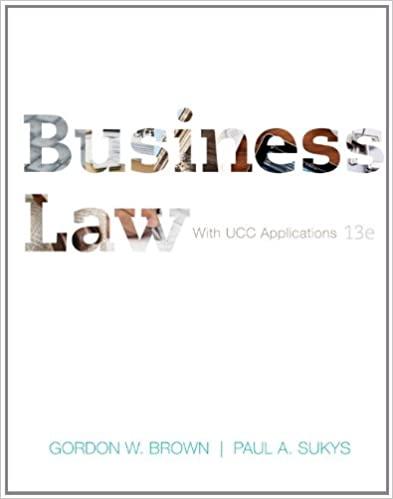Curtis Ellison was riding as a passenger in his own vehicle when it was pulled over by
Question:
Curtis Ellison was riding as a passenger in his own vehicle when it was pulled over by the police for a parking violation. The vehicle had actually been targeted because the police had routinely checked the license plate through the department’s database. This routine check had revealed that the owner of the vehicle had an outstanding warrant pending against him. When the police searched the van, they found two firearms hidden in the vehicle.
As a result, Ellison was charged with felonious possession of a firearm. He argued that the search had violated his Fourth Amendment rights and that his right to privacy had been infringed. The trial court agreed and dismissed the case. The case went to the appellate court. The issue before the appellate court was whether Ellison had a high expectation of privacy about the number on his license plate. Although this is a criminal case, it is still interesting to speculate on how the court would rule on the expectation of privacy in relation to a license plate. Why should the appeals court reverse the ruling by the trial court that there is a high expectation of privacy in relation to a license plate? Explain. United States v. Ellison, No. 04-1925; see also “Criminal Practice: No Privacy Expectation on License Plate Numbers,” The National Law Journal, September 18, 2006, p. 16.
Step by Step Answer:

Business Law With UCC Applications
ISBN: 9780073524955
13th Edition
Authors: Gordon Brown, Paul Sukys





